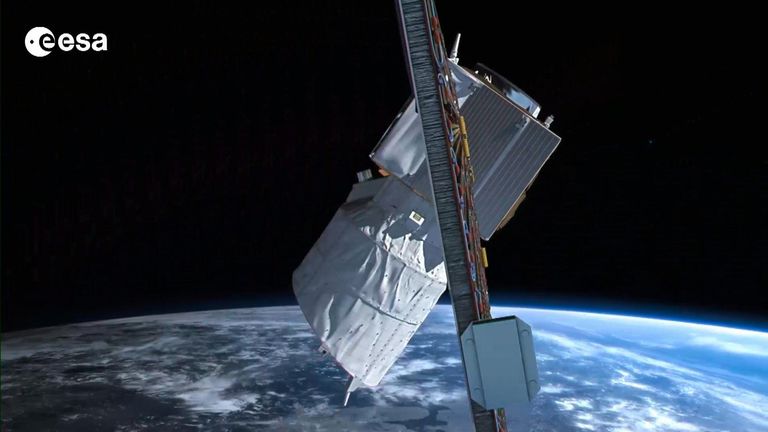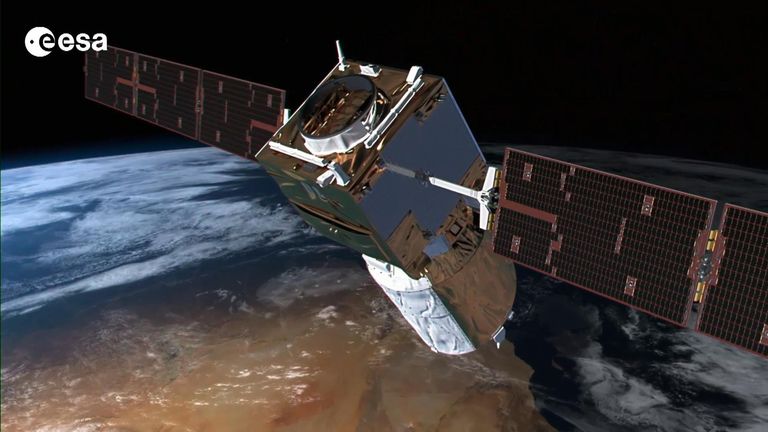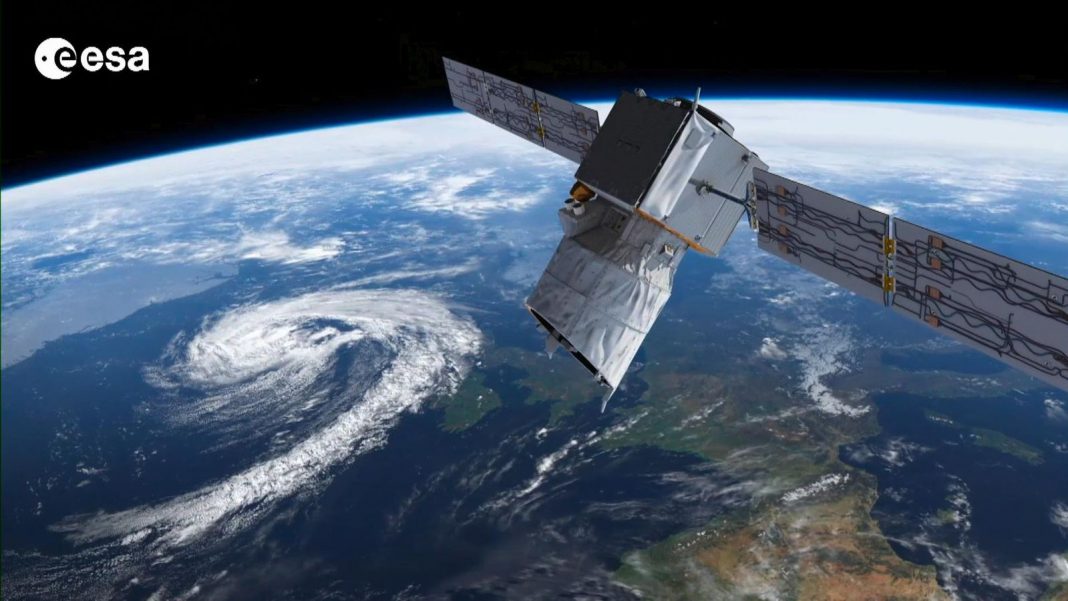Aeolus, a British-built weather-monitoring satellite, has been deliberately crashed into the Atlantic Ocean.
It is the first time a satellite has been guided to perform an assisted crash on Earth, the European Space Agency (ESA) said.
Aeolus has been providing data to weather centres across Europe since 2018, and was the first satellite mission to acquire profiles of Earth’s wind on a global scale.
It was due to be in orbit for three years but outlasted its mission by almost two more.
The 1,360kg craft was built by Airbus Defence and Space in Stevenage.

Pic: European Space Agency
Under normal circumstances, it would have fallen back to Earth naturally, burning up in the planet’s atmosphere after reaching an altitude of about 50 miles.
Instead, it was guided to its final resting place by mission controllers at the ESA, using what little fuel remained onboard.
Aeolus had been falling from its operational altitude since 19 June and performed its first major re-entry manoeuvre on 24 July.
Simulations by the agency suggest some debris may survive the heat of the planet’s atmosphere, although the risk of it causing any damage is said to be small.
The ESA said: “The Aeolus mission control team in Germany is now wrapping up after a long week of complex operations.
“They have done everything they planned in what is a first-of-its-kind assisted re-entry.”

Pic: European Space Agency
Dr Jenifer Millard, an astronomer and co-host of the Awesome Astronomy Podcast, said that “nowadays, when satellites are put up, there has to be some sort of mechanism on board to help them come back through the atmosphere safely”.
Alternatively, they have to “entirely burn up in our atmosphere”, she told Sky News.
Dr Millard said the successful return of Aeolus was a “huge achievement to help us manage space debris”.
About 20% of the craft may have survived re-entry, Dr Millard said, amounting to a few hundred kilogrammes.
It is a boost for the UK space industry, she added.
“We are pioneering, we are world-leading in this,” she said.







